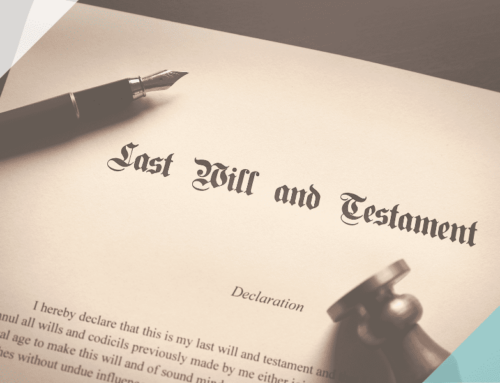The long-running case of Rea v Rea 2023, about the estate of the late Anna Rea (the deceased), has now come to an end after a judgement has been handed down by the Court of Appeal.
This case had begun in 2016 and had been presented in court four times before a final judgement was given by the Court of Appeal.
The case focused on whether undue influence had been applied when the deceased had made her Will.
Background
Anna Rea had four children. This included her daughter, Rita, who was the claimant in this case, and her three sons, Remo, Nino and David, who were the defendants.
In 2015, the deceased prepared a new Will, in which she made a specific gift of her property to Rita absolutely, whilst the residuary estate was left to the four children, equally. The deceased justified her decision by stating that Rita had helped take care of her over the years, whilst she believed her sons had abandoned her.
The Will was prepared by a solicitor who had requested the deceased to undergo a mental capacity test, which was completed by Dr Qaiyam. The results of the test proved that the deceased had mental capacity and that she was not being coerced by Rita. The execution of the Will was then witnessed by the solicitor and Dr Qaiyam.
As a result of these changes to her Will, the deceased’s three sons challenged the validity of the Will on several grounds including that the will had been made under undue influence.
Undue influence is when a testator is coerced by another person into making a Will. To prove this, it must be shown that the testator was manipulated into making certain decisions that they otherwise would not have made if they made the Will on their own terms.
The First Trial
Initially, Rita issued proceedings to prove the deceased’s most recent Will in solemn form. However, the deceased’s sons challenged the validity of the Will on the grounds of lack of testamentary capacity, want of knowledge & approval, undue influence and fraudulent calumny. At the trial, the Judge stated that the brothers had fallen “well short” of the requirement to prove what they had challenged. It was concluded that the deceased did have testamentary capacity and the brothers’ claim was dismissed.
The First Appeal
The brothers appealed this decision to the Court of Appeal. This appeal was successful and a re-trial was ordered due to a procedural error during the first trial.
The Second Trial
It was concluded that the deceased had the testamentary capacity when making the Will and had understood and approved the contents of the Will. It was also found that the testator’s mind had not been “poisoned” by Rita. However, the Judge declared that there was sufficient evidence to prove that the deceased was under undue influence by Rita.
The Judge justified his decision by stating that the deceased was frail and dependant on Rita. It was also found that neither the deceased nor Rita mentioned the Will to anyone, including the deceased’s sons.
As a result, the judge declared the 2015 Will as invalid.
The Second Appeal
Rita appealed the High Court’s decision to the Court of Appeal in 2023. The Judge stated that there was a mistake in finding that undue influence had been exercised in the preparation of the Will. The Judge declared that to prove undue influence, “the circumstances must be such that undue influence is more probable than any other hypothesis.”.
Final Points
This case highlights the difficulty in proving undue influence in relation to the validity of a Will.
This case has also proven how important it is to gain a medical expert’s opinion and to document this, as it presents a strong case for proving that undue influence was not a factor in preparing the Will.
Our blogs and articles are correct at the time of writing.
These have been created for marketing purposes only and should not be considered as legal advice.





